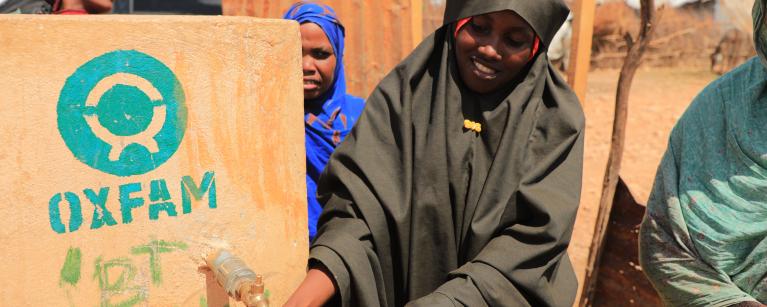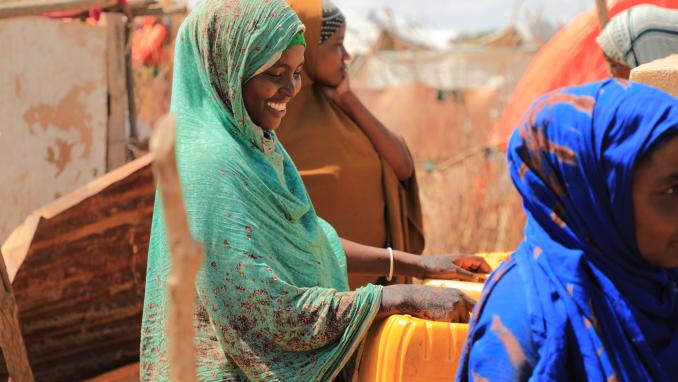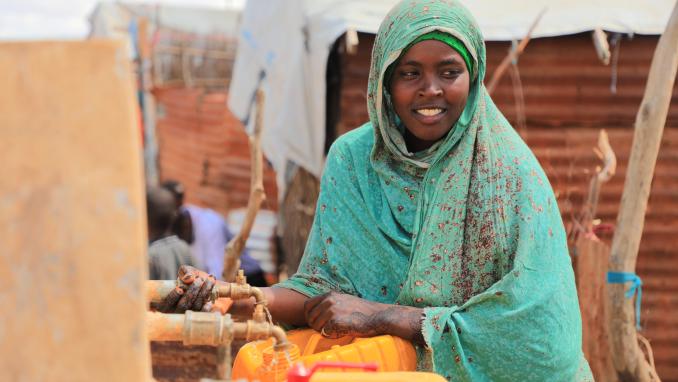“As displaced communities, we had to beg for water from our neighbors. It was not always guaranteed that we would get water from them. Sometimes, they would give us very little water which is not enough. This was a huge challenge,”
Beledweyne, Somalia, faces significant challenges due to frequent displacements and natural disasters. Oxfam's Water, Sanitation, and Hygiene (WASH) project has contributed to improving living conditions for the Internally Displaced Persons (IDP) community in this region. The impact of this initiative is evident through the experiences of residents like Raaliya Ibrahim, who lives in the Beledweyne IDP camp.
Before the implementation of Oxfam's project, access to clean water was difficult for many residents. Raaliya recalls, "We used to buy water at 10 US cents per Jerrican, which is expensive for the communities here, including the elderly and orphans." The financial burden was just one aspect of their daily struggle. Often, residents had to resort to asking for water from neighbors, with no guarantee of success.
"As displaced communities, we had to beg for water from our neighbors. It was not always guaranteed that we would get water from them. Sometimes, they would give us very little water which is not enough. This was a huge challenge," Raaliya explains, describing the situation they faced.
The introduction of free, clean water has significantly improved life for Raaliya and her community. "Access to free, clean water has improved our lives," she states. The impact extends beyond convenience; it has enhanced the quality of life for families in the camp.
Raaliya shares, "We use the water for washing and cooking. My children's hygiene has improved, and I can wash them three times a day, thanks to the water I receive." This change has brought better health to many families.
Mohamed Arto, MEAL Officer at Oxfam, provides context to the wider issues faced by the community: "Communities in Beledweyne face multiple displacements each year because of floods. They can be uprooted up to two to three times a year, which means they will have to deal with waterborne diseases such as the outbreak of cholera because of the unclean water they are using."
Oxfam's WASH project is an important intervention in a cycle of displacement and disease. By providing access to clean water, the project is helping to mitigate these issues, offering a foundation for better health in an uncertain environment.
The story of Beledweyne’s IDP community is one of perseverance. Through Oxfam's WASH project, residents like Raaliya have found relief from daily water-related challenges. The project shows how access to clean water can lead to positive change, affecting various aspects of life from personal hygiene to community health.
As the residents of Beledweyne continue to face challenges, the availability of clean water demonstrates the impact of targeted humanitarian efforts. It's not just about providing water; it's about contributing to improved health and living conditions for the community.


